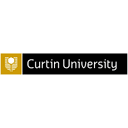Learn to support mental health in autism, celebrate neurodiversity, and develop self-care strategies in this 4-week course.
Learn to support mental health in autism, celebrate neurodiversity, and develop self-care strategies in this 4-week course.
Discover the intricate relationship between autism and mental health in this comprehensive course. Over four weeks, you'll explore key concepts like monotropism, interoception, and sensory processing in autism. Learn to recognize signs of mental health challenges, develop strategies for self-care and self-advocacy, and understand how to promote positive mental health outcomes for autistic individuals. This course features insights from autistic individuals, health professionals, and researchers, providing a well-rounded perspective on autism and mental wellbeing. Ideal for autistic individuals, their supporters, and professionals seeking to enhance their understanding of autism and mental health.
4.9
(17 ratings)
Instructors:
English
English
What you'll learn
Understand monotropism as a theory of autism and its impact on cognitive processing
Explore interoception and its role in recognizing internal bodily signals
Identify the effects of sensory overload on mental health in autistic individuals
Develop strategies for maintaining good mental health and building mental fitness
Recognize risk factors for autistic burnout and learn prevention techniques
Explore effective communication styles and strategies for social connection
Skills you'll gain
This course includes:
PreRecorded video
Graded assignments, exams
Access on Mobile, Tablet, Desktop
Limited Access access
Shareable certificate
Closed caption
Get a Completion Certificate
Share your certificate with prospective employers and your professional network on LinkedIn.
Created by
Provided by

Top companies offer this course to their employees
Top companies provide this course to enhance their employees' skills, ensuring they excel in handling complex projects and drive organizational success.





There are 4 modules in this course
This course provides a comprehensive exploration of the relationship between autism and mental health. It is structured into four modules, each focusing on crucial aspects of understanding and supporting mental wellbeing in autistic individuals. The first module introduces the concept of monotropism as a theory of autism, examining how single-focused attention impacts autistic individuals' experiences. The second module delves into sensory processing and interoception, exploring how internal sensing systems and sensory overload affect mental health. The third module focuses on social connections, addressing communication styles and strategies for building meaningful relationships. The final module covers practical strategies for self-care and self-advocacy, equipping learners with tools to promote positive mental health outcomes. Throughout the course, learners will hear from autistic individuals, health professionals, and researchers, providing diverse perspectives on living with autism and maintaining mental health. The curriculum is designed to celebrate neurodiversity while providing practical skills for recognizing and addressing mental health challenges in the context of autism.
Autism, cognitive processing and mental health
Module 1
Autism, the senses and mental health
Module 2
Social connections
Module 3
Strategies and self-advocacy
Module 4
Fee Structure
Instructors

5 Courses
Occupational Therapy Expert and Autism Researcher at Curtin University
Dr. Ben Milbourn is a Senior Lecturer in the Faculty of Health Sciences at Curtin University, recognized for his significant contributions to occupational therapy practice and research, particularly in the areas of autism and mental health. His work focuses on vulnerable populations and strength-based approaches for individuals with Autism Spectrum Disorder (ASD).

5 Courses
Leading Autism Researcher Advancing Strengths-Based Approaches at Curtin University
Professor Sonya Girdler is a distinguished academic and researcher in the field of autism studies, affiliated with the School of Occupational Therapy, Social Work and Speech Pathology at Curtin University. As the Director of the Curtin Autism Research Group (CARG), she leads a team of over 100 members, including academics, PhD students, and autistic individuals, focusing on strengths-based approaches and interventions for autism. Professor Girdler's extensive experience spans various aspects of autism research, with particular emphasis on understanding functioning through the International Classification of Functioning, Disability and Health (ICF) framework, developing and implementing strengths-based programs, conducting employment research, and evaluating evidence-based interventions. Her work has significantly contributed to improving the participation of autistic individuals in major life areas such as employment and education, with notable successes in peer mentoring programs for autistic university students and social skills training programs for autistic teenagers. Professor Girdler's research is characterized by a commitment to leveraging individual strengths, person-centered approaches, and addressing the priorities of the autistic community, making her a leading figure in autism research both nationally and internationally.
Testimonials
Testimonials and success stories are a testament to the quality of this program and its impact on your career and learning journey. Be the first to help others make an informed decision by sharing your review of the course.
Frequently asked questions
Below are some of the most commonly asked questions about this course. We aim to provide clear and concise answers to help you better understand the course content, structure, and any other relevant information. If you have any additional questions or if your question is not listed here, please don't hesitate to reach out to our support team for further assistance.



